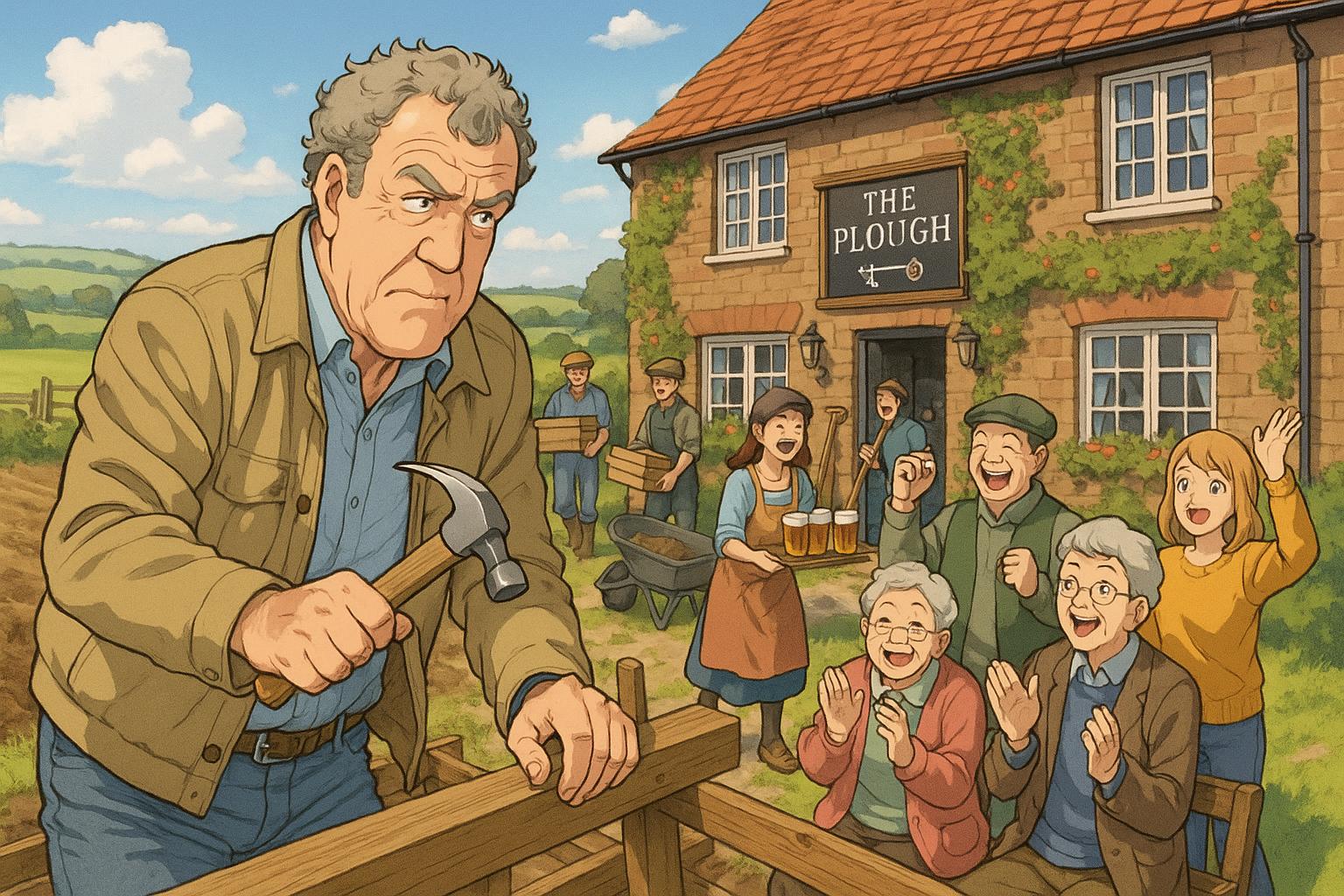Jeremy Clarkson has recently cast a spotlight on the pressing issue of loneliness in rural UK areas, advocating for the vital role local pubs play in fostering community connections. In the third episode of season four of "Clarkson's Farm," the former "Top Gear" presenter embarks on a quest to locate and renovate a pub, aiming to transform it into a welcoming space that serves both as a traditional drinking establishment and a purveyor of produce from his Diddly Squat farm.
Clarkson's reflections come against the backdrop of alarming statistics concerning the decline of rural community hubs. During his search, he encounters numerous pubs that have closed, invoking a sense of urgency about the preservation of these vital spaces. He poignantly states, “Loneliness is a big issue in rural areas and part of the problem is villages losing their soul,” highlighting a landscape devoid of essential local services. Clarkson notes a notable absence of traditional community fixtures: “You don't have a village doctor anymore. You can't get an appointment with a health centre 30 miles away,” he observes. This loss of local infrastructure culminates in his concern about the very essence of rural life, questioning what constitutes a village if its pub ceases to exist.
According to data released by the British Beer and Pub Association, about six pubs in the UK closed each week in 2024, leading to around 4,500 job losses. London emerged as the hardest-hit area with the closure of 34 pubs, prompting calls for immediate government intervention to avert further “completely avoidable” closures. Such alarming trends underscore Clarkson's assertion that the local pub is essential for maintaining social cohesion and community spirit.
In August 2024, Clarkson opened The Farmer's Dog, previously known as The Windmill, in Asthall, near Burford in Oxfordshire, acquiring the site for under £1 million. Despite the challenges faced by the wider hospitality industry, Clarkson’s pub has drawn considerable attention, with hundreds queuing on opening day to enjoy traditional British fare crafted from locally sourced ingredients, including his own beer, Hawkstone. The establishment seeks to weave itself into the fabric of the community, aspiring to become a hub where villagers can gather and rekindle connections that may have become frayed.
However, the opening has not been without its hurdles. Clarkson is currently embroiled in a planning dispute with local authorities regarding the pub's car park expansion to accommodate increasing visitor numbers. Concerns have been raised about the potential environmental impact due to the pub's proximity to a 1,400-year-old Anglo-Saxon burial site, illustrating the ongoing tension between development and preservation in the region.
As Clarkson and his team continue to navigate the complexities of farming and hospitality, they are acutely aware of the broader implications of their endeavours. Clarkson has expressed a sense of humility amidst his newfound agricultural venture, stating, “I got into farming and found it is really difficult. I’m not saving farming; I’m just reporting on it.” With each endeavour, from farming to pub ownership, Clarkson aims to spotlight the intricate challenges plaguing the agricultural sector, thus fostering greater awareness and understanding of the vital role these rural spaces play in the communities that rely on them.
As the conversation around rural loneliness intensifies, Clarkson’s commitment to reviving the village pub resonates deeply within this context, acting as a reminder of the importance of social spaces where community and camaraderie can thrive amidst the sweeping changes affecting rural life.
Reference Map
- Paragraph 1: 1, 2
- Paragraph 2: 1, 2
- Paragraph 3: 1, 2
- Paragraph 4: 1, 3, 4
- Paragraph 5: 1, 5
- Paragraph 6: 1, 6, 7
- Paragraph 7: 1, 2, 4
- Paragraph 8: 1, 3
- Paragraph 9: 1, 6
Source: Noah Wire Services
